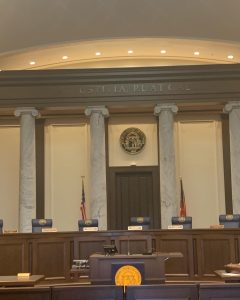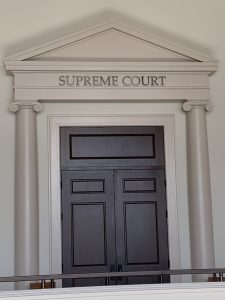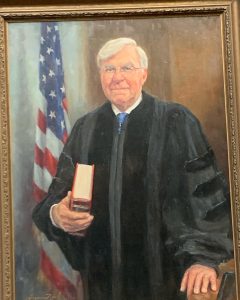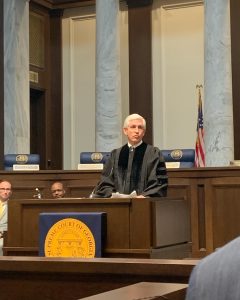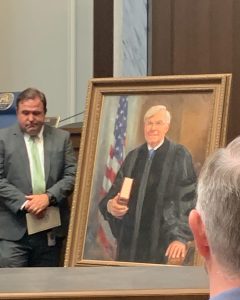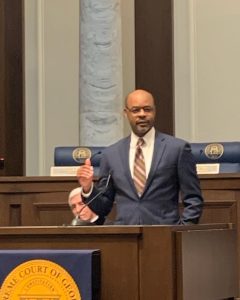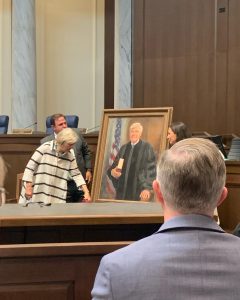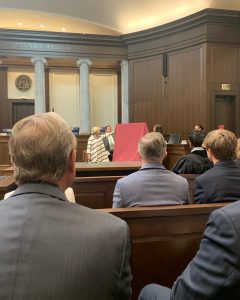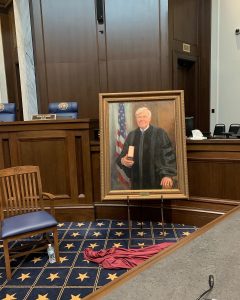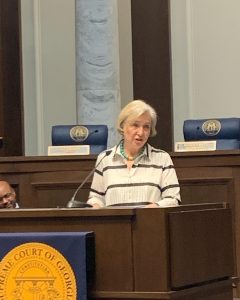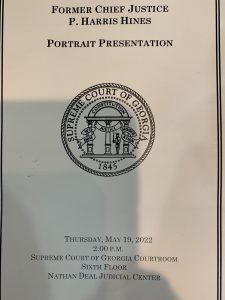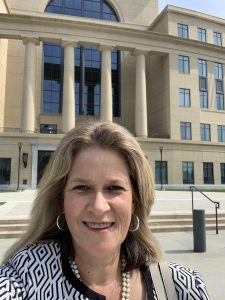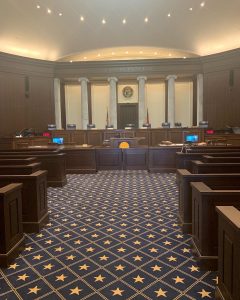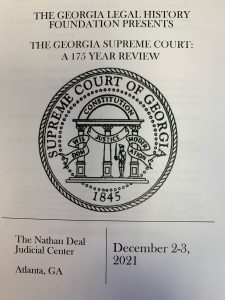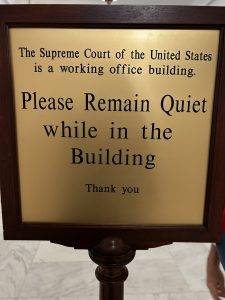
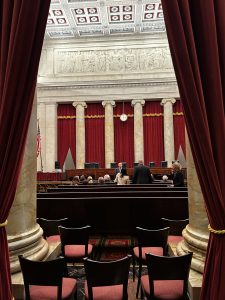

I am sitting here in my office at my desk watching the Georgia Supreme Court oral arguments today, October 21, 2025, on my computer. I am able to do this because the Georgia Supreme Court televises live all of its oral arguments, even when it travels around the State of Georgia for special oral arguments. You and anyone in the world can watch oral arguments by going to the Georgia Supreme Court’s website and simply clicking LIVE Oral Arguments. It’s that easy and that simple. And that’s exactly as it should be.
The live feed of the Georgia Supreme Court focuses on each speaker, whether it is the attorney or the Justice and identifies each Justice as they ask questions. In this way, the public knows which Justice is speaking, and can see for itself how seriously the Court takes every matter before it. And how seriously every lawyer takes being before the Court. If any citizen of Georgia ever had any doubt about how the Georgia Supreme Court operates and how seriously it takes its oath to do Justice and uphold the Georgia Constitution, watching oral arguments would quickly alleviate that doubt. The Georgia Supreme Court’s live televised oral arguments allows every Georgia citizen (and really anyone in the world who is watching) to have complete confidence in our Georgia Justice System and in the degree of due process given to everyone before the Court. Any citizen can also go in person to the Georgia Supreme Court to watch oral arguments. The Court is open to the public for good reason. All of this engenders confidence in our legal system and the Rule of Law.
Now let’s turn to the United States Supreme Court, which, in my opinion, operates in the dark, just the opposite of the Georgia Supreme Court. The United States Supreme Court does NOT televise their oral arguments live, and does NOT have an open courtroom, and this leads to doubt about what it is doing, lack of confidence in its rulings and lack of respect of the Court by the general public. With the Court’s recent unprecedented uptick in the use of its so-called “emergency docket,” nicknamed “the Shadow Docket,” it goes further down in public opinion and confidence.
 Atlanta Injury Lawyer Blog
Atlanta Injury Lawyer Blog


